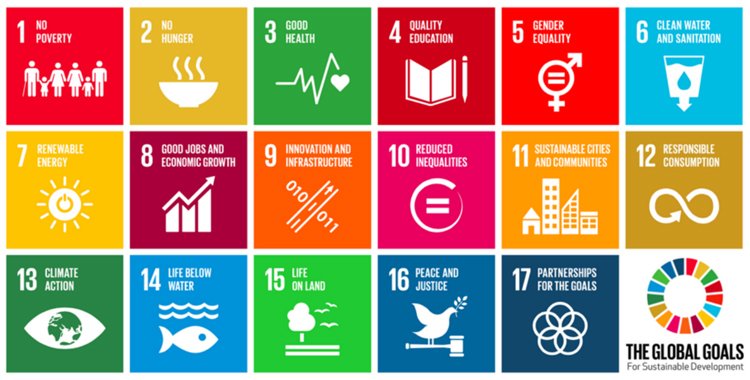
Driving Sustainable Growth: How CSR Fuels the Achievement of SDGs in Africa
In recent years, Africa has emerged as a critical focal point for discussions on sustainable development and corporate responsibility. As businesses worldwide recognize the need to balance profitability with social and environmental stewardship, the intersection of Corporate Social Responsibility (CSR) and the Sustainable Development Goals (SDGs) has gained prominence. This article delves into how CSR initiatives align with the SDGs in Africa, the challenges faced, and the transformative potential for achieving sustainable growth.
What Are CSR and SDGs?
CSR refers to a company’s efforts to conduct business in an ethical and sustainable manner by addressing social, environmental, and economic concerns. It encompasses practices such as reducing carbon footprints, improving labor policies, and contributing to community welfare.
The SDGs, introduced by the United Nations in 2015, consist of 17 interconnected goals designed to address global challenges, including poverty, inequality, climate change, and environmental degradation. These goals aim to create a sustainable future for all by 2030.
Why the Intersection of CSR and SDGs Matters in Africa
Africa faces unique challenges, including high poverty rates, limited access to education and healthcare, and vulnerability to climate change. At the same time, the continent is rich in natural resources and boasts a young, dynamic population. This duality underscores the need for businesses to adopt CSR strategies that align with the SDGs to drive meaningful progress.
1. Addressing Poverty and Hunger (SDGs 1 and 2)
Many CSR initiatives in Africa focus on poverty alleviation and food security. For example, agribusinesses are leveraging CSR to promote sustainable farming practices, improve crop yields, and support smallholder farmers. Such initiatives not only contribute to SDGs 1 (No Poverty) and 2 (Zero Hunger) but also create more resilient supply chains.
2. Promoting Quality Education and Gender Equality (SDGs 4 and 5)
Education and gender equality are critical for sustainable development. Companies operating in Africa are investing in educational programs, vocational training, and scholarships, particularly for girls and marginalized communities. By doing so, they address SDG 4 (Quality Education) and SDG 5 (Gender Equality), while cultivating a skilled workforce that benefits their long-term growth.
3. Combating Climate Change and Promoting Clean Energy (SDGs 7 and 13)
With Africa’s high vulnerability to climate change, businesses are integrating environmentally conscious practices into their operations. Investments in renewable energy projects, such as solar and wind farms, align with SDG 7 (Affordable and Clean Energy) and SDG 13 (Climate Action). These initiatives reduce environmental impact while fostering energy independence.
4. Building Sustainable Cities and Communities (SDG 11)
Urbanization in Africa presents both opportunities and challenges. CSR programs that focus on building infrastructure, providing affordable housing, and improving waste management contribute to SDG 11 (Sustainable Cities and Communities). Such initiatives not only improve living conditions but also enhance business opportunities in urban markets.
Challenges in Aligning CSR with SDGs in Africa
Despite the potential for impactful CSR initiatives, several challenges hinder their alignment with the SDGs:
- Limited Resources: Many companies, particularly small and medium-sized enterprises (SMEs), lack the financial and human resources to implement large-scale CSR programs.
- Regulatory Barriers: Weak governance and inconsistent regulatory frameworks in some African countries can impede CSR efforts.
- Monitoring and Evaluation: Measuring the impact of CSR activities on SDGs remains a significant challenge due to the lack of standardized metrics and reliable data.
- Short-Term Focus: Some businesses prioritize immediate financial gains over long-term sustainability objectives.
The Way Forward: Unlocking the Transformative Potential
To overcome these challenges and fully harness the potential of CSR in achieving the SDGs in Africa, stakeholders must adopt a collaborative and strategic approach:
- Public-Private Partnerships: Governments and businesses should work together to design and implement CSR initiatives that align with national development plans and SDGs.
- Innovative Financing: Mechanisms such as impact investing and green bonds can provide the necessary funding for large-scale CSR projects.
- Capacity Building: Training programs and knowledge-sharing platforms can help businesses, especially SMEs, integrate CSR into their core strategies.
- Data-Driven Decisions: Companies should invest in monitoring and evaluation systems to track progress and demonstrate the tangible impact of their initiatives.
Conclusion
The intersection of CSR and the SDGs represents a powerful opportunity to drive sustainable development in Africa. By aligning business strategies with global goals, companies can not only enhance their competitiveness but also contribute to the continent’s long-term prosperity. With the right policies, partnerships, and investments, CSR can be a catalyst for transformative change, ensuring that Africa’s development is both inclusive and sustainable.








